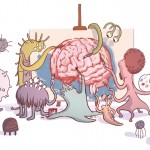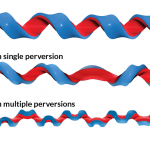How Does Sugar Affect Your Brain? Turns Out In A Very Similar Way To Drugs And Alcohol

Sugar. Just the thought of a sweet snack can make even the most hardcore dieter weak at the knees. The promise of a single fresh-baked chocolate chip cookie can make children eat an entire plate of vegetables or motivate couch potatoes to run that one extra mile. So what exactly does sugar do to our brains that make it so, well addictive?
Hooked From The First Bite
From the first bite sugar sends a message to the brain, activating the its reward system. That’s right; sugar has a similar effect on your brain to hanging out with friends, sex, and even drugs. This reward system is a series of electrical and chemical path systems across several different regions of the brain, Dr. Nicole Avena, a researcher in the department of psychiatry at the University Of Florida College Of Medicine explained in a recent TED talk.
The main chemical involved in this biological reward system is dopamine. In people who experience dependency on drugs, nicotine, and alcohol, the dopamine receptors are sent into overdrive causing the individual to be constantly seek that “high” effect. The end result is addiction. Sugar causes a similar reaction in the brain, although not nearly as extreme as in the case of other addictive substances.
Dopamine
Whenever we eat food dopamine is released in the brain. However after eating the same food time after time, the dopamine levels begin to even out and we no longer find the dish as satisfying as we once did, Avena explained. This is because the human brain evolved to motivate us to eat a wider variety of food. This evolutionary tacit ensures that humans both receive a balanced amount of vitamins and minerals, while also helping us to steer away from dangerous rotting food. Interestingly enough, no matter how much sugar a person consumes, the dopamine levels will never even out enough to motivate the discourage an individual from eating more sugar.
Addictive Elements
Not all doctors will agree that food is addictive, but the pleasure feeling one has after consuming a sugary treat is undeniable. Like all addictive activities, too much of sugar can be a far from a good thing. It may cause loss of control, cravings, and even an increased tolerance for sugar. In sugar-fed mice, absence of the addictive was seen to produce events of binging, craving, and even withdrawal symptoms,Business Insider reported.



